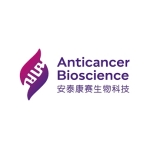- CNY63m (~USD10m) raised from Chinese investors – brings total equity raised to CNY131m (~USD21m)
- Funds will be used to expand proprietary small molecule and natural product screening libraries, and to progress at least two synthetic lethal programs towards IND enabling studies
- Positive animal data reported already in proprietary small molecule program targeting MYC overexpression
CHENGDU, China–(BUSINESS WIRE)–#MYC–Anticancer Bioscience (ACB), pioneers in synthetic lethal approaches to precision oncology, announced today that having successfully closed an additional financing round, raising CNY63m (~USD10m), it has already achieved positive animal data in its small molecule program targeting MYC overexpression.
The financing, by a small syndicate of undisclosed, experienced Chinese angel investors adds to the previous seed financing of CNT68.75m (~USD11m) and is being used to support further expansion of ACB�s proprietary screening libraries and discovery platforms, with the goal of progressing two of its programs towards IND enabling studies this year.
ACB is an international private company, commercialising discoveries emerging from China�s world-leading cancer research at the J. Michael Bishop Institute of Cancer Research.
The Company is using its unique screening libraries and discovery platforms in cancer biology to uncover novel mechanisms to induce cancer cell death, without harming healthy cells. Synthetic lethality is possible when the same genetic changes that enable carcinogenesis also make the cancer cell overly dependent on specific pathways and proteins. Attacking these dependencies with drugs can yield dramatic anti-cancer effects, while leaving normal cells healthy. Synthetic lethality enables targeting of drivers of carcinogenesis that are not currently amenable to drug development.
The Company has five distinct synthetic lethality programs in drug development. These include:
- Oncogene enabled synthetic lethality (focused on MYC inhibition)
- Tumour suppressor synthetic lethality
- Polyploid cell synthetic lethality
- Centrosome amplification/delustering therapy
- Restoration of contact inhibition
ACB has invested in proprietary small molecule and natural product libraries, that comprise novel scaffolds of drug-like molecules and natural medicinal botanicals, with over 20,000 botanical samples already collected and curated. ACB�s small molecule libraries are based on novel scaffolds upon which further diversity can be assembled. These general-utility new scaffold-drug fragment (GUNS-DF) libraries, are being expanded and evolved through iterative screening/optimization processes for multiple phenotypic screening projects.
In the company�s lead MYC inhibition program, a novel chemical series with low nM activity has been identified in model cell lines. Already, functional activity of ACB�s lead �HJ� compound series has been demonstrated in vitro that mimics inhibition of Aurora B kinase. Inhibition of Aurora B kinase is known to elicit synthetic lethality in cells overexpressing MYC. The synthetic lethal phenotype includes the induction of cell cycle arrest early in mitosis followed by accumulation of polyploid cells. ACB is further exploring a second MYC inhibitory compound series.
Founder, President, and CEO of ACB, Dr. Dun Yang, said, �With the additional financing, we are well placed to accelerate our synthetic lethal approach and to maximise the value of our libraries and pipeline. Already a provisional filing covering the novel library of HJ compounds has been completed and this is the first GUNS-DF library for which ACB has filed for PCT patent protection, testifying to the utility of our library technology platform. We expect to follow this with additional composition of matter filings as we progress our MYC and other discovery programs.�
ACB�s goal is to generate first-in-class oncology drugs for a broad range of indications (targeting over 30% of cancer patients), with a focus on therapies disabling previously untargeted mitotic regulators. Overexpression of MYC engenders vulnerability in mitosis and many other cellular processes. It is the most commonly deregulated oncoprotein, making targeting it through synthetic lethality an attractive strategy for cancer therapy.
Since its foundation in 2016, ACB has grown to almost 50 employees in Chengdu China, Hyderabad, India, San Francisco, USA, and St Andrews, UK.
-ENDS-
About Anticancer Bioscience https://www.anticancerbio.com/
Anticancer Bioscience (ACB) is an international private company, commercialising discoveries emerging from China�s world-leading cancer research at the J. Michael Bishop Institute of Cancer Research. With pioneers in synthetic lethal approaches to precision oncology and experts in MYC biology and cell division, ACB was founded in 2016 in Chengdu, China. ACB is based on over 20 years of collaborative research between founder Dr. Dun Yang and his Nobel laureate mentor Dr. J. Michael Bishop. It has raised CNY131m (~USD21m) and has ~50 employees in Chengdu, China, Hyderabad, India, San Francisco, USA, and St Andrews, UK.
Follow us on LinkedIN and Twitter.
Contacts
At the company
Anticancer Bioscience
[email protected]
Media relations
Scius Communications
Sue Charles
+44 (0) 7968 726585
[email protected]







